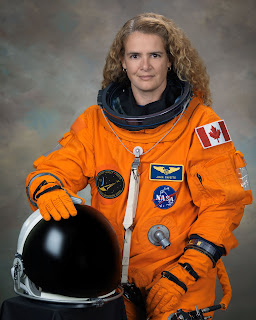A few readers from Turkey questioned about precise nature of Dr. Anilir's position.
What we confirmed is as follows:
- In March 2003, he obtained Ph. D. in Engineering from the University of Tokyo.
- After that, in Academic Year 2003, he was a "Space and Astronautical Project Research Staff" at ISAS (research division of JAXA).
- There is no record of Dr. Anilir's exact position for Academic Year 2004. However, it is likely that he continued his "Project Research Staff" position in 2004 as well.
- Since Academic Year 2005, he is an Assistant Professor at Department of Architechture, Faculty of Engineering, the University of Tokyo. No official affiliation with ISAS can be found since then.
In Japan, Academic Year starts in April (for example, Academic Year 2003 is from April 2003 to March 2004).
NOTE: Most of the links in this posting refer to documents in Japanese. Maybe they are not very useful for non-Japanese readers, but they are provided so that anyone can verify in principle.
I do not know what the "Project Research Staff" means at ISAS, but it usually implies an entry-level research position funded by some project money. Namely, it is not a regular (permanent) faculty or staff member of ISAS (JAXA). In fact, he does not appear in the "List of Researchers" in the ISAS annual report. This does not mean he was not at ISAS, but he was not part of the regular faculty/staff. His position was perhaps a good start for a fresh Ph. D., but looks nothing exceptional. In the annual report of ISAS for 2003, his name appears in the "Research Activity" section with the above title (and in the Publications and Presentations section.) In the annual report of ISAS for 2004, his name appears only in the Publications and Presentations section; there is no clear indication of his title. His name still does not appear on the "List of Researchers", it seems that he was not a regular faculty/staff in 2004 and in any academic year until 2007. His name is not found also in the current list of faculties at ISAS.
In any case, there is no evidence that Dr. Anilir was a "Director" of any Department at ISAS.
Dr. Anilir obtained the position "Joshu" at the University of Tokyo in 2005. The literal English translation of "Joshu" is "Assistant", maybe similar to Dozent in German system. However, the actual job was often much more independent than "Assistant", strongly depending on each place. Standard English translation was perhaps "Research Associate", but some people used "Assistant Professor " for "Joshu". "Joshu" was a part of faculty but usually they did not lecture regular class. In Science Departments, their job is often to take care of student experiment session. Since Academic Year 2007, Japanese Universities are regulated by a new law and the title of the job was changed to "Jokyo". Dr. Anilir also was transferred to "Jokyo" position. According to the new law, "Jokyo" is more like an independent faculty and closer to "Assistant Professor". In many places, the reality of the job did not change very much, however, before and after the new law. One indication of the tradition is that his group is still called as "Matsumura-Fujita Lab" (because of Professor Matsumura and Associate Professor Fujita in the group, without referring to Dr. Anilir). In any case, it would be fair to say that Dr. Anilir has been enjoying much of academic(??) freedom before and after 2007, without much pressure to "assist" his Professor.
For the English translation of "Jokyo", "Research Associate" is still popular but "Assistant Professor" is also used (and is closer to the spirit of the new law.) I think each University or Department has some policy on the translation. I do not know the policy of his Department, but probably it is legitimate for him to use the title of Assistant Professor, in English. However, there seems no justification for his frequent use of the title "Associate Professor" (see for example the slide in the photo from his talk in Korea.)
The difference between "Assistant Professor" and "Associate Professor", however, might look a negligible problem after seeing grandiose claims found in former Turkish Wikipedia article.......



























